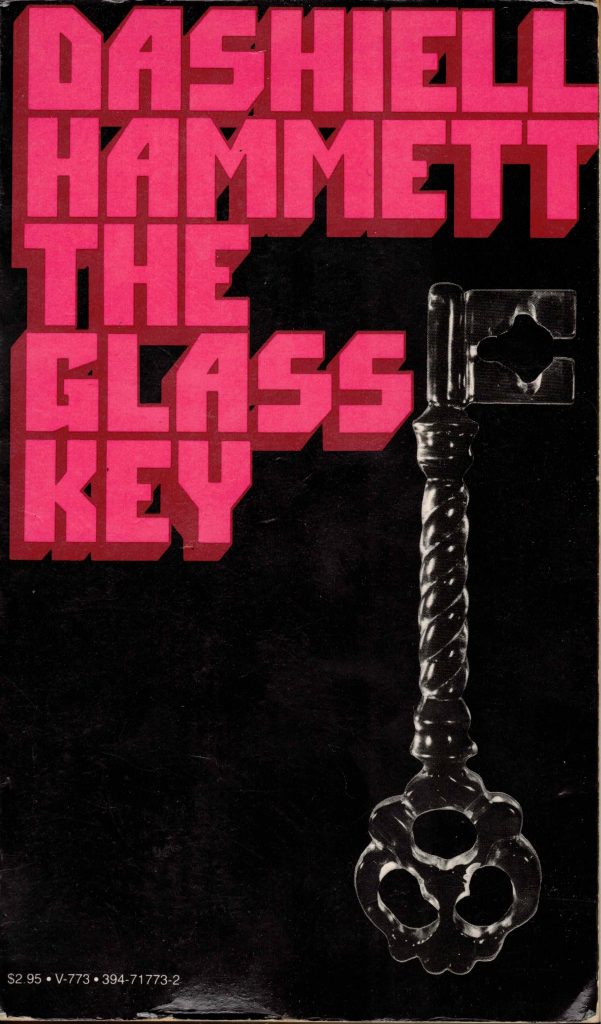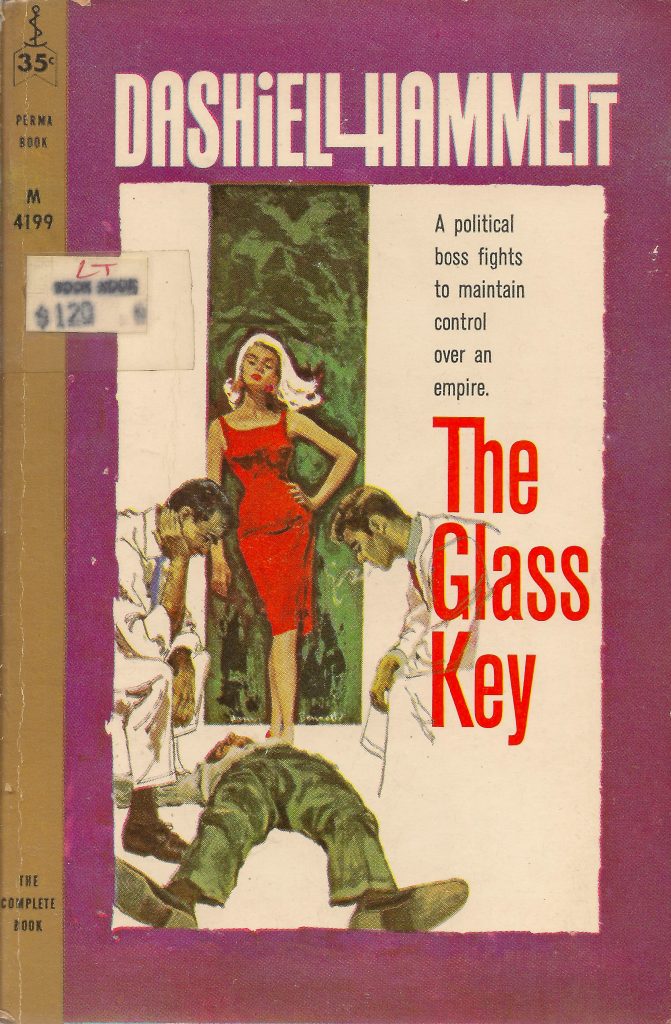
Dashiell Hammett’s The Glass Key is one of the ten best books of all time. At least in English, which is the only language I feel even the slightest competence for such judgment. (Being born and raised in Georgia, English is my second language, never having had a first.) I’d be hard-pressed to say what the other nine are—or even whether there are only nine other books in the Top Ten, but The Glass Key certainly makes the list. If you’ve never read it, you should get a copy and put it on the table next to your bed; if you’ve already read it, you should pull it down from the shelf and start reading it again. I just have, and am once again pummeled and left reeling by this perfect novel.
They stood thus, less than a yard apart—one blond, tall and powerfully built, leaning far forward, big shoulders hunched, big fists ready; the other dark of hair and eye, tall and lean, body bent a little to one side with an arm slanting down from that side to hold a heavy glass seidel by its handle—and except for their breathing there was no sound in the room. No sound came in from the bar-room on the other side of the thin door, the rattling of glasses nor the hum of talk nor the splash of water.
This noir crime story centers on the best protagonist ever to solve a murder, Ned Beaumont, attractive to the ladies and, as he describes himself, “a gambler and a politician’s hanger-on.” Beaumont is a man who always knows the score, who is always working the angles, though he does have the disconcerting habit of walking into a fight he cannot win. The politician—Paul Madvig—is the boss of an unnamed city somewhere near New York, with whom Beaumont has been working for a year and has become close. Ned will go to the mattress for his friend, and does at one point, almost losing his life due to what another character dubs his “massacrist” streak. Perhaps Beaumont truly is a “massacrist”; he has the sharpest mind in town, however, and everybody knows it.
She smiled then. “Surely you don’t believe in dreams?”
He did not smile. “I don’t believe in anything, but I’m too much of a gambler not to be affected by a lot of things.”
Like The Maltese Falcon, the novel is written with no internal monologue at all; the characters do this and say that, and the reader has to decide what it all means, if anything. Critics now debate what motivates Ned Beaumont. The novel screams (as Dorothy Parker did of Hammett) that what people actually do is what matters. In his strange way, Beaumont uses the truth as a finely honed weapon in a town full of liars, victorious—in his way—only because nobody ever believes him. Truth is better than lies, because believing the lies will doom you, but the truth will still hurt.
“I can’t stand for it. If I stand for it I’m licked, my nerve’s gone. I’m not going to stand for it. I’m going after him.”

If there is another novel which so perfectly limns its characters and environs without intruding upon their supposed thoughts and motivations, I am unaware of it. I could re-read this book one hundred times and enjoy it every time, whether or not I got ‘something new’ out of each reading (the usual standard for re-reading doesn’t apply here). I haven’t yet seen the 1935 George Raft movie version, so I cannot say anything about it. But I’m well aware that the 1942 film version of the novel starring Alan Ladd doesn’t do the source material justice. Watching Veronica Lake is always very pleasant, but the movie never gels together, nor do the characters. As far as I’m concerned, then, the best movie version is the Coen brothers’ Miller’s Crossing, which isn’t based on The Glass Key, at least not overtly; but the ‘feel’ of the Gabriel Byrne film is very reminiscent of the Hammett novel. Check it out, after you’ve read (or re-read) the novel.
Leave a comment